Synology SNV3400-400G Performance Testing
We are moving towards using larger test sizes on our benchmarks, but on several tests, we also used the smaller default test sizes. This allows us to see the difference between lighter and heavier workloads.
BlackMagic Disk Speed Test
This is a popular speed test in the video community. It shows whether a storage device is suitable for throughput required at a given video format.
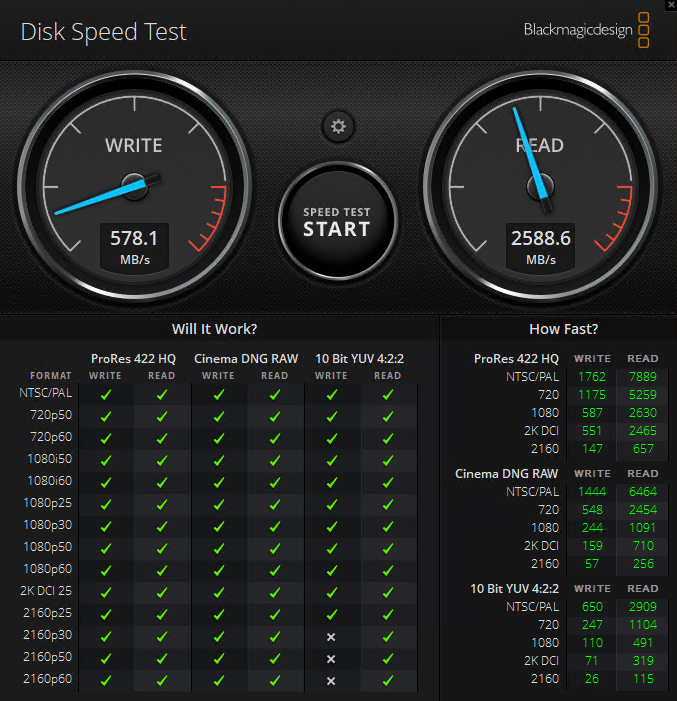
Normally a NVMe SSD is able to cruise through this test, but owing to the uniquely slow sequential write performance of the SNV3400-400G some formats do not make the cut.
CrystalDiskMark 7.0.0 x64
CrystalDiskMark is used as a basic starting point for benchmarks as it is something commonly run by end-users as a sanity check.
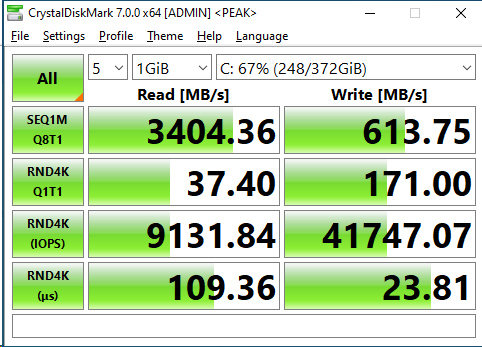
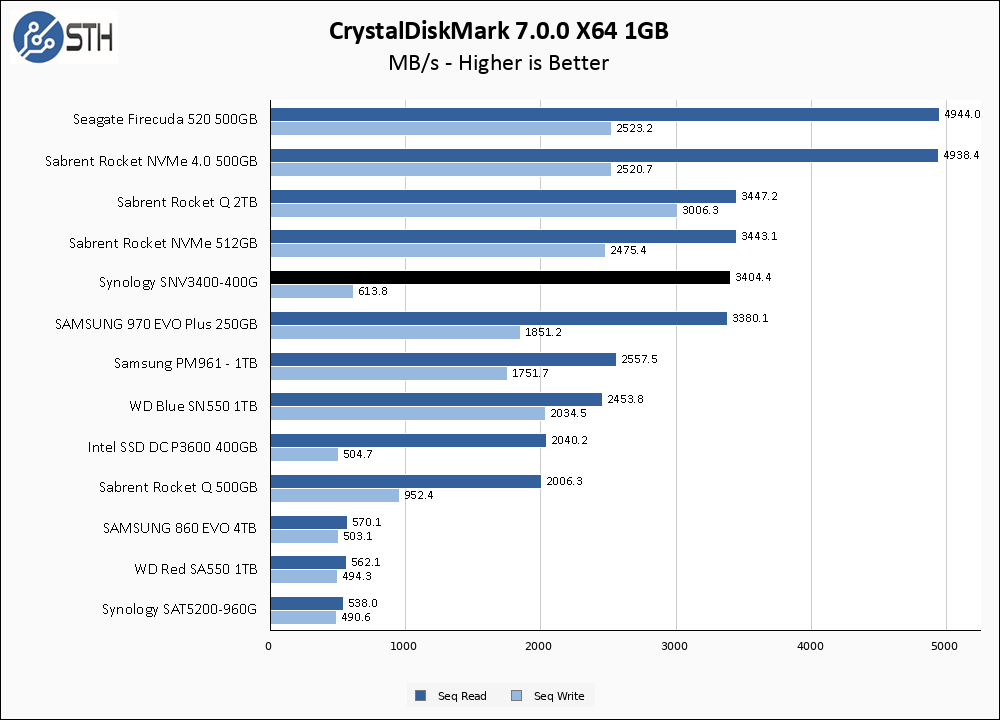
The SNV3400-400G manages to be the most interesting drive on the graph, with a gigantic divide between the read and write performance. On the upside, it is outperforming the rated specifications of 3100 MB/s read and 550 MB/s write by a decent margin. Also of note is that the drive did indeed achieve its rated 40K write IOPS in random 4K test.
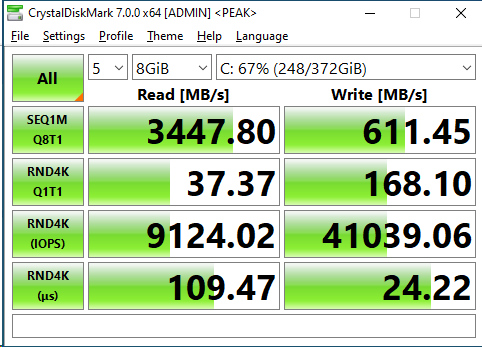
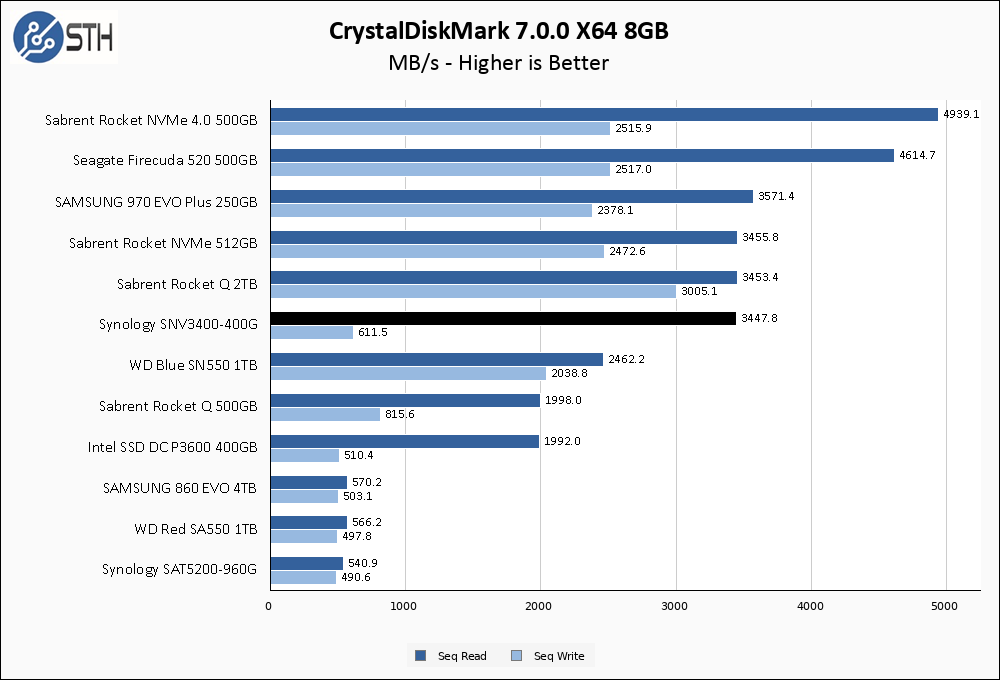
Moving to a larger test set did not affect the SNV3400-400G in any way. This is what we would expect since this drive is marketed on its consistency of performance. The divide between read and write performance is still somewhat comical on the graph.
ATTO Disk Benchmark
The ATTO Disk Benchmark has been a staple of drive sequential performance testing for years. ATTO was tested at both 256MB and 8GB file sizes.
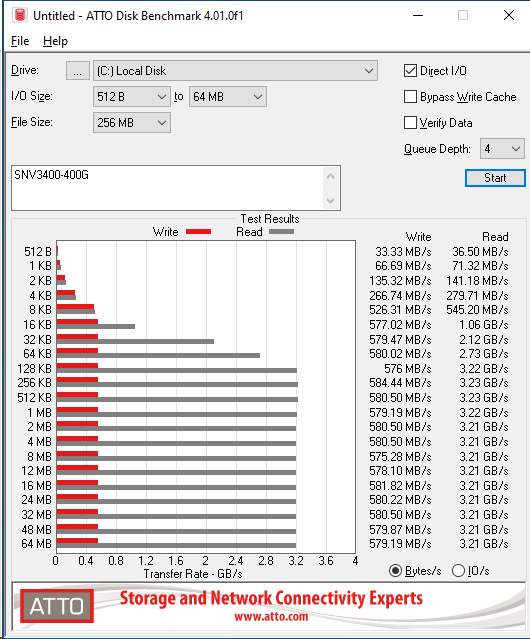
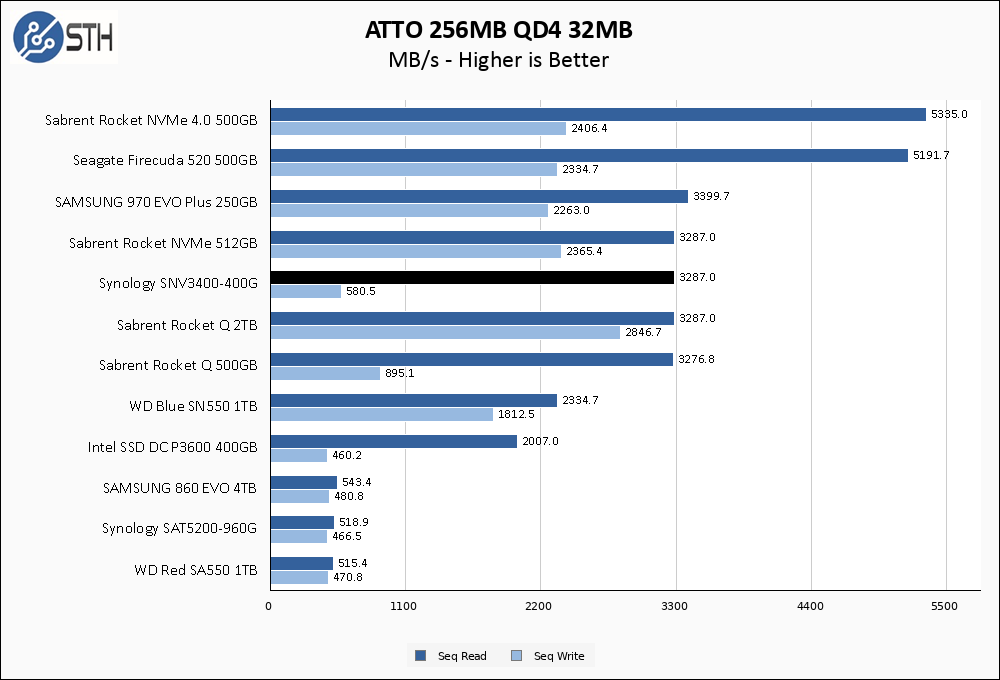
In ATTO, the SNV3400-400G continues to outperform its own rated specs, and turns in very consistent results across the entire benchmark.
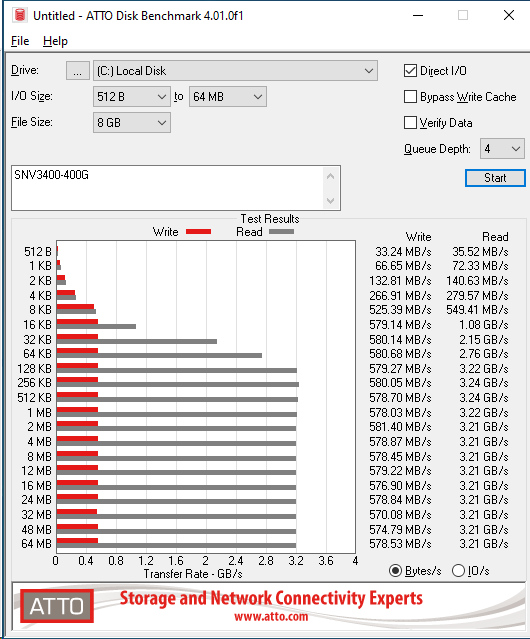
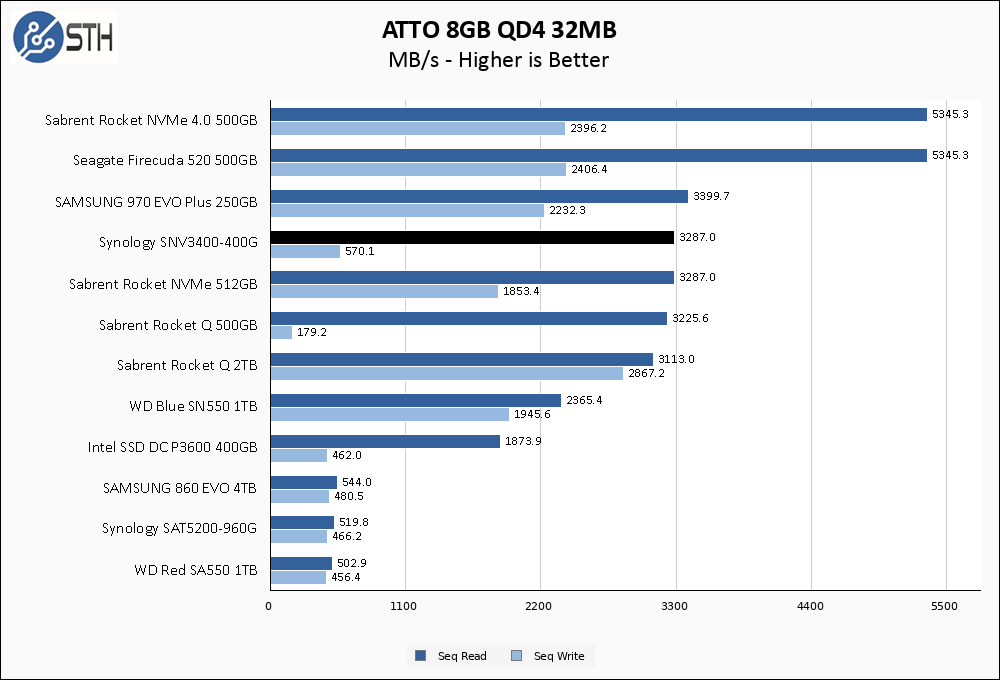
Once again the larger test set has no negative impact on performance; the ATTO 8GB test set is nearly indistinguishable from the 256MB one.
Anvil’s Storage Utilities
Anvil’s Storage Utilities is a comprehensive benchmark that gives us a very in-depth look at the performance of drives tested. This benchmark was run with both a 1GB and 8GB test size.
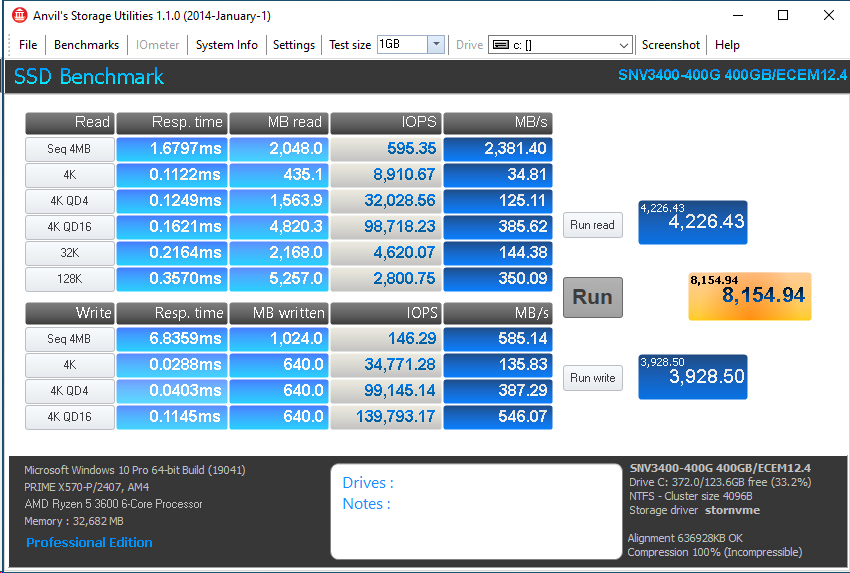
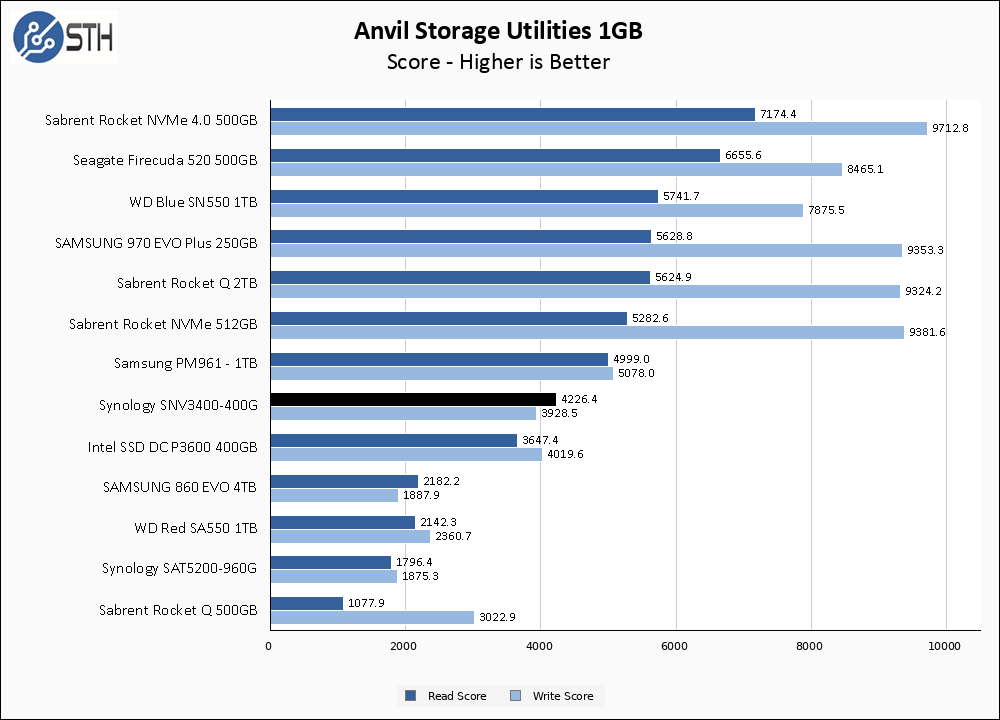
With Anvil we start to see some separation in the write performance achievable on the SNV3400-400G compared to SATA drives. In previous benchmarks they were fairly close, but in Anvil the NVMe drive runs away with the show. Of particular note are the very strong random 4K, 4KQD4, and 4KQD16 results that easily smash the SATA based Synology SAT5200-960G and the WD Red SA550 1TB drives.
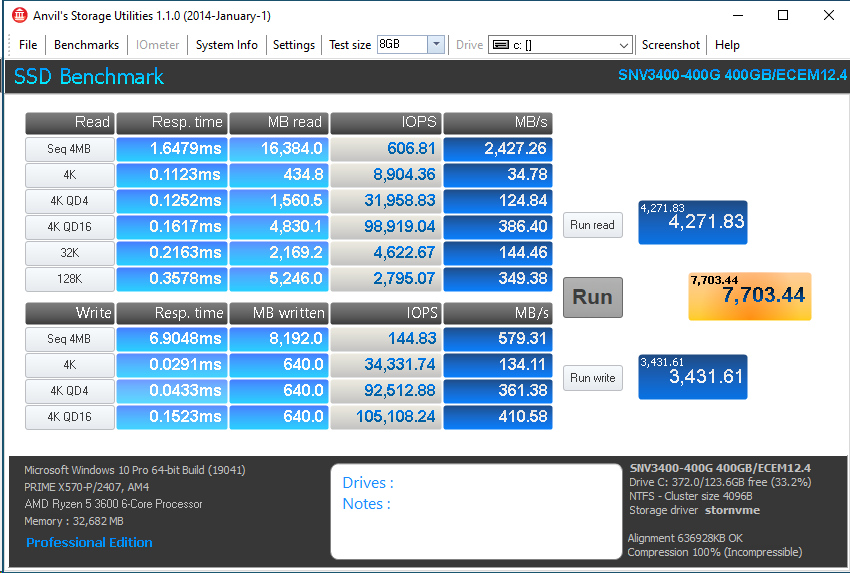
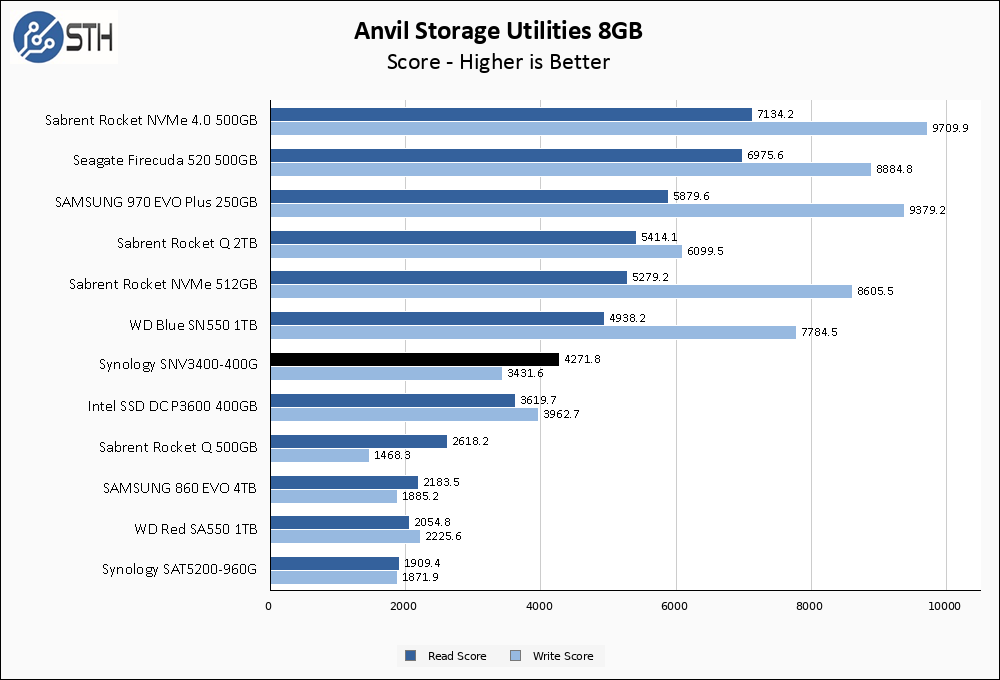
Keeping to the trend, the SNV3400-400G is unaffected by the larger test set, and continues to easily outpace any of the SATA SSDs in write performance characteristics.
AS SSD Benchmark
AS SSD Benchmark is another good benchmark for testing SSDs. We run all three tests for our series. Like other utilities, it was run with both the default 1GB as well as a larger 10GB test set.
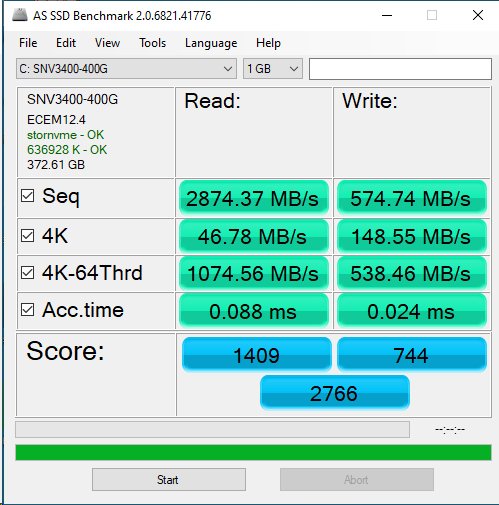
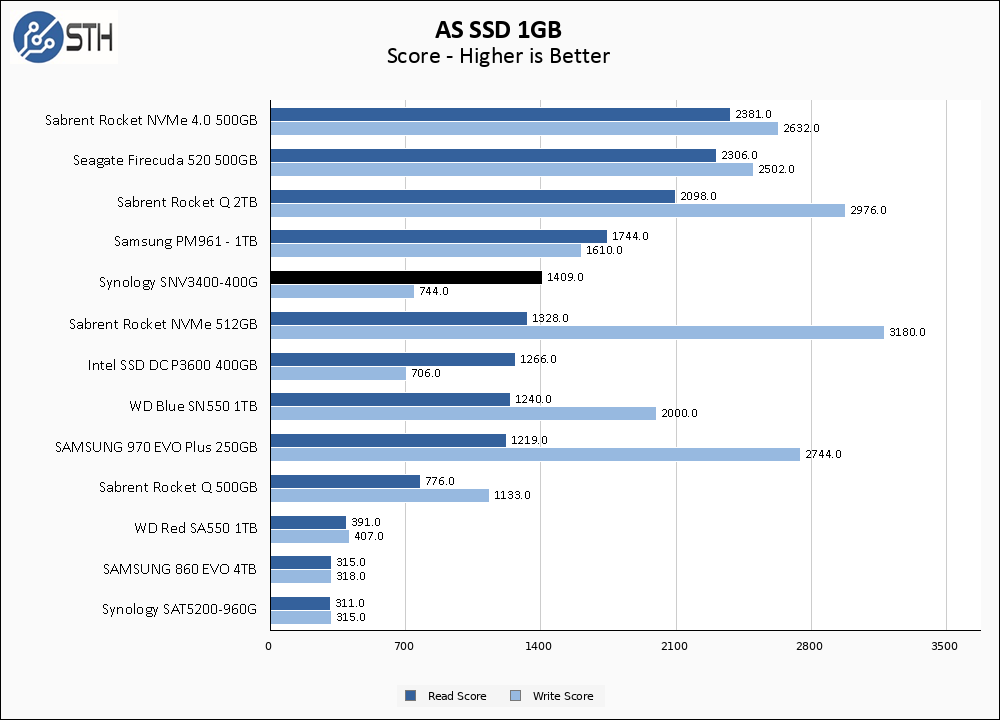
AS SSD presents another opportunity for the SNV3400-400G to shine, at least compared to any of the SATA drives on the list. Compared to other NVMe SSDs it is still trending low on the chart.
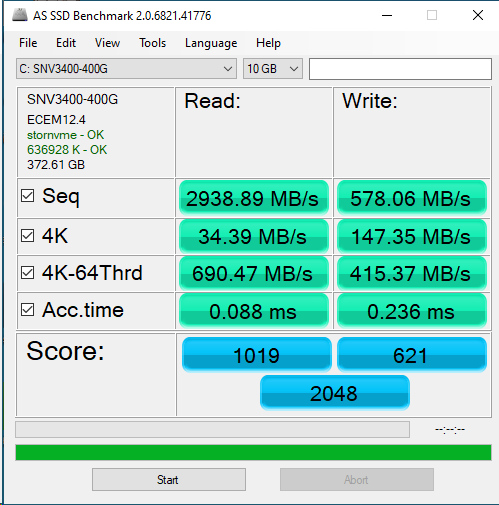
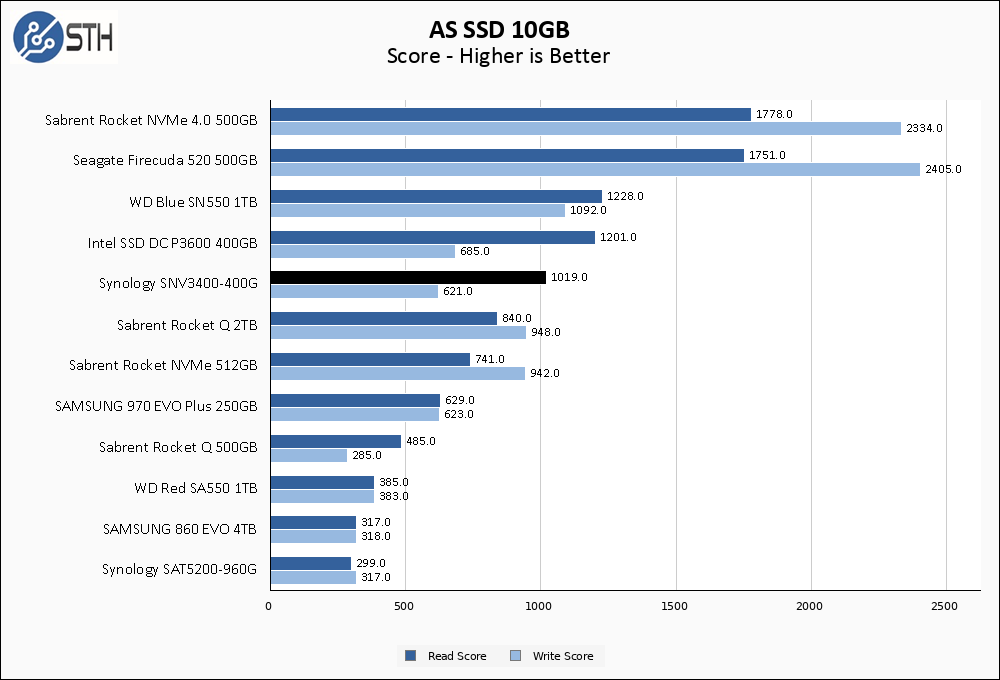
For the first time in our testing, the SNV3400-400G has a meaningful difference in performance thanks to the larger test set. In particular, read performance takes a decent-sized hit. With that said, write performance remains largely unaffected and that consistency continues to be a point of relative strength for this drive, and overall the drive takes a smaller hit in performance than some of the other drives on this list.
SPECworkstation, and our conclusion are up next.

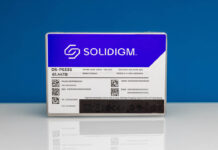

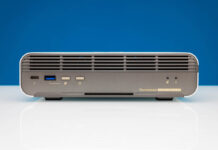
Would have been nice to see an ms-sql benchmark and to get the size of the PLP protected cache, which could play a big part in SQL/ESX (synchronous IO). Even though it only have 500-650 MB/s write performance, it might be faster then all other drives in a SQL environment?
Cal,
This drive does not have PLP
Ops, my mistake, sorry.
But if it had, would you had investigated the cache size? And it’s performance gain on synchronous I/O (e.g SQL and ESX)?
Why I’m bringing it up it’s because it’s always messing in reviews of PLP drives, even though one could claim it’s one of the most important advantages of PLP supported drives in my opinion, just to conside for future reviews 😉
It’s something I would like to look at, yes. But thus far I have only reviewed one drive with PLP and it was a SATA drive that was not targeting high performance. If/when I start reviewing more drives targeting that segment, my testing methodology will likely adapt.
Could the relatively poor write performance indicate the controller is not using unused cells as an SLC cache but is writing directly to multi-level cells? This avoids the need for frequent coffee breaks to compress the SLC to MLC, with associated throughput dropouts and reliability risk, since the data isn’t saved in its final form until long after the write cycle is claimed to be complete.
Benchmarking may need to be done with nearly-full drives to check this and other cell reuse cases. Understandably, few testers have time to write fresh multiples of the drive capacity for each test pass; certainly not if you want to publish before the product is EOL!